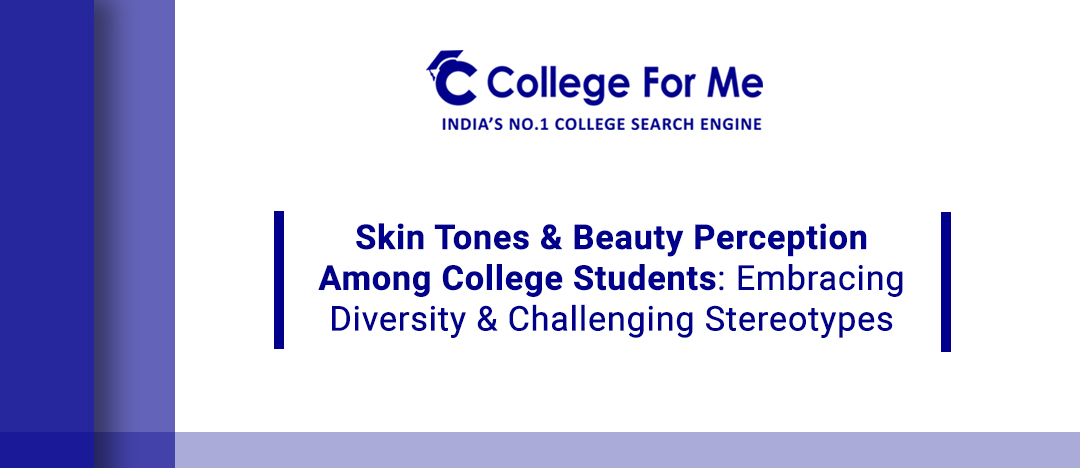Career Scopes Of A B.Tech. Student
There is a high demand for B.Tech. degree holders in the private sector, yet, there is also the opti...

In today's society, beauty standards play a significant role in shaping individuals' self-perception and self-worth. Among college students, the pressure to conform to societal ideals of beauty can be particularly intense, leading to the reinforcement of stereotypes and the exclusion of those who do not fit the mold. One critical aspect of beauty perception is the impact of skin tones on how individuals are perceived and treated. Understanding the dynamics of skin tones and beauty perception among college students is crucial in fostering a more inclusive and diverse campus culture.
The Influence of Media and Beauty Standards:
Media, including magazines, advertisements, movies, and social media platforms, heavily influences beauty ideals. Historically, these standards have often been narrow and Eurocentric, promoting lighter skin tones as the epitome of beauty. Such portrayals perpetuate harmful stereotypes and create unrealistic expectations for college students, particularly those with darker skin tones. Consequently, individuals with darker complexions may face discrimination, bias, and lower self-esteem due to the lack of representation in the media and beauty industry.
Colorism: The Prevalence of Bias Based on Skin Tone:
Colorism, a form of discrimination based on skin tone, exists both within and outside of communities of color. Among college students, colorism can manifest in various ways, from subtle microaggressions to overt exclusionary practices. Students with lighter skin tones may receive preferential treatment or be perceived as more attractive, while those with darker skin tones may face prejudice and negative stereotypes.
Impact on Mental Health and Self-Perception:
The impact of skin tone bias on mental health and self-perception can be profound. College students who do not conform to mainstream beauty standards may experience feelings of inadequacy, anxiety, and depression. These negative emotions can hinder academic performance, social interactions, and overall well-being. The pressure to achieve unrealistic beauty ideals may also lead some students to resort to harmful practices, such as skin bleaching or excessive tanning, in an attempt to fit in or gain acceptance.
Promoting Inclusivity and Celebrating Diversity:
Colleges and universities have a vital role in promoting inclusivity and celebrating diversity among their student body. Embracing cultural diversity and challenging narrow beauty standards can foster a more positive and accepting environment. Here are some strategies to achieve this:
Conclusion
Skin tones and beauty perception play a significant role in shaping the experiences of college students. In educational institutions, it is crucial to recognize the impact of colorism and narrow beauty standards on the mental health and self-perception of students. By promoting inclusivity, celebrating diversity, and challenging stereotypes, colleges can create a more supportive and accepting environment for students of all skin tones. Embracing beauty in its multifaceted forms will not only empower individuals but also enrich the campus culture as a whole.

There is a high demand for B.Tech. degree holders in the private sector, yet, there is also the opti...

If you are looking for a bright and prospective career, then getting a B.Tech. in CSE must be under ...
Comments (0)